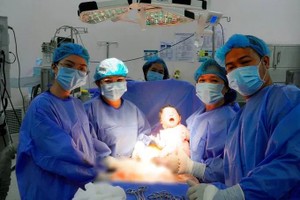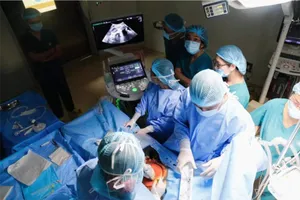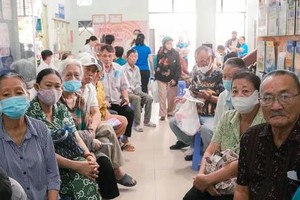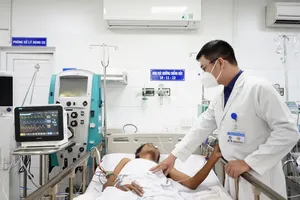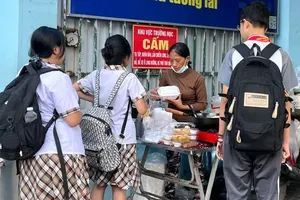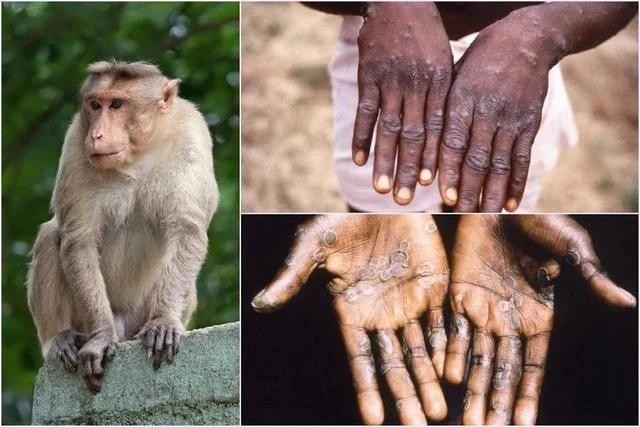
The Ministry of Health today sent its dispatch to people’s committees in 63 cities and provinces requiring to increase surveillance on the disease.
Following the Ministry of Health, to proactively monitor, detect early cases of monkeypox within the country, and promptly control any potential outbreaks, preventing widespread transmission and minimizing morbidity and mortality, municipal and provincial people's committees spread information to departments, agencies, and organizations to strictly adhere to the directives of the Government and the Prime Minister as outlined in Official Dispatch No. 680/CĐ-TTg dated August 1, 2022, concerning the strengthening of monkeypox prevention and control efforts.
Moreover, healthcare facilities ought to adhere to the Ministry of Health's guidelines on monkeypox surveillance, prevention, diagnosis, and treatment, and the prevention of monkeypox transmission.
Furthermore, surveillance to detect suspected cases should be enhanced at border crossings while healthcare facilities must monitor the disease by paying particular attention to integrating surveillance and prevention with HIV/AIDS programs in gynecological and dermatological clinics, as well as public and private healthcare facilities providing HIV/AIDS prevention services.
Last but not least, medical institutions must update contingency plans to be prepared for the possibility of the outbreaks while ensuring adequate supplies of medicines, equipment, personnel for treatment. Communication and public education on monkeypox prevention measures should be conducted as recommended by the Ministry of Health, focusing on high-risk populations.
Hygiene and Epidemiology Institutes, Pasteur institutes and frontline hospitals treating infectious diseases are required to analyze, evaluate, and closely monitor the monkeypox development in localities to promptly detect cases, clusters, sources of infection, and possible new pathogens.
Additionally, infirmaries must ensure the availability of medicines, equipment, personnel, and funding to implement measures for classification, isolation, treatment, and prevention.
According to the Ministry of Health, in 2024, particularly in the last two months, the WHO has reported an unusually high increase in monkeypox cases in the Democratic Republic of Congo. Since the beginning of 2024, approximately 15,600 cases have been reported in this country, with over 537 deaths.
Preliminary findings indicate several epidemiological characteristics of the disease that differ from those observed in previous outbreaks in 2022-2024 in Europe and other countries. From careful observation, healthcare workers realized that a younger age group is among cases (approximately 50 percent under 15 years old, and around 39 percent under 5 years old), transmission through sex workers (7.5 percent ), and intrafamily transmission.
The World Health Organization has lately declared the ongoing Mpox outbreak in Africa a global health emergency. The U.N. health agency said Mpox was recently identified for the first time in four East African countries: Burundi, Kenya, Rwanda and Uganda. Sweden and Pakistan confirmed their first cases of the viral infection Mpox recently, which was also the first case outside Africa.

